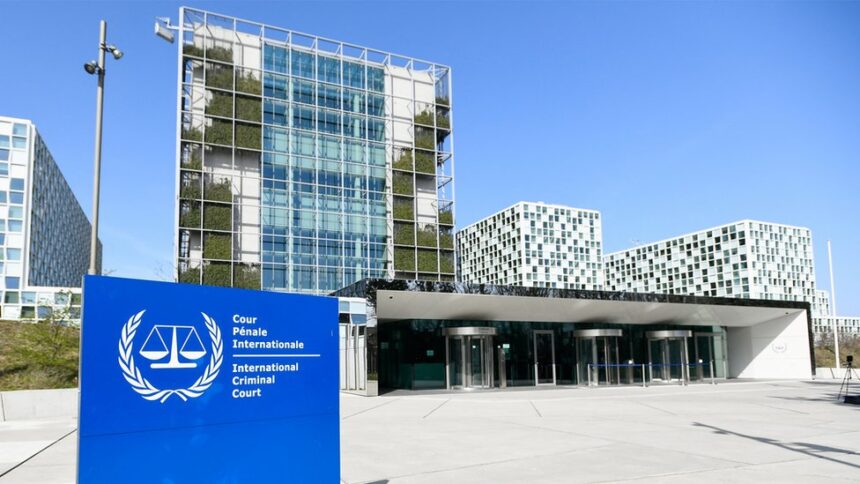The International Criminal Court (ICC), based in The Hague, was created by the Rome Statute of 1998 to prosecute those responsible for genocide, crimes against humanity, war crimes, and the crime of aggression. It acts only when national courts cannot or will not deliver justice, making it the world’s court of last resort.
Every ICC action begins with the question of jurisdiction. The Court investigates only crimes committed after July 1, 2002, and usually within the territory or by citizens of a country that has ratified the Rome Statute. In special cases, the UN Security Council can extend this authority, even to non-member states, through a formal referral.
The ICC can open an investigation in several ways. A member state may refer a situation involving crimes on its territory or by its nationals. The UN Security Council may also refer a case, as it did in Darfur in 2005 and Libya in 2011. Lastly, the Prosecutor may act independently after receiving credible information from victims, NGOs, or other reliable sources, but must first obtain approval from ICC judges before a full investigation begins.
Before a formal investigation starts, the Prosecutor conducts a preliminary examination to check if the ICC has jurisdiction, whether the crimes are serious enough, and whether national authorities are already investigating. This process also considers the interests of victims and whether pursuing the case serves the broader interests of justice. If there is a reasonable basis to proceed, the matter moves forward.
When the Prosecutor acts independently, authorization from the Pre-Trial Chamber is required. Judges review the evidence and observations before granting permission. Once approved, the Prosecutor can begin gathering evidence officially. A full investigation involves collecting documents, interviewing witnesses, and visiting relevant locations. Investigators work to establish patterns of crimes and identify those most responsible. Cooperation with national authorities is crucial, and if a government refuses to cooperate, the Prosecutor can report it to the Assembly of States Parties or the UN Security Council.
When the investigation identifies suspects, the Prosecutor may request an arrest warrant or a summons to appear. Judges approve these only if there are reasonable grounds to believe a person committed a crime under ICC jurisdiction. Arrests are carried out by member states, which are legally obligated to comply with ICC orders. Because the ICC has no police force, it relies entirely on governments to enforce its decisions. Member nations are expected to help with arrests, share evidence, and protect witnesses. If they fail to do so, the Court can report them to the international community.
The ICC also upholds the rights of the accused, ensuring fairness at every stage. Every suspect is presumed innocent until proven guilty and has the right to a lawyer, to remain silent, and to be informed of the charges. They can also challenge the Court’s jurisdiction. These safeguards prevent misuse of international justice for political motives.
Before trial, judges hold a confirmation hearing to determine whether the evidence is strong enough to proceed. If confirmed, the case moves to trial before independent judges. Trials are public and transparent, and any verdict can be appealed. Victims also have a voice in ICC proceedings. They can participate through legal representatives and receive reparations after conviction. The Trust Fund for Victims provides psychological, medical, and financial support to survivors even before the trial ends.
The ICC steps in only when national courts fail to act. If a country is genuinely investigating or prosecuting, the ICC will not interfere. This principle, known as complementarity, balances sovereignty and accountability, ensuring that justice begins at home whenever possible.
Real-world examples show how the Court operates. In Kenya, the ICC investigated the 2007–2008 post-election violence after the Prosecutor acted on their own initiative. In Sudan, the UN Security Council referred the Darfur situation, resulting in indictments against senior officials. In Ukraine, multiple states referred alleged war crimes in 2022, leading to one of the ICC’s largest ongoing investigations. These examples show that the ICC operates under law, not politics.
The Court still faces serious challenges. Some countries ignore arrest warrants, while others accuse it of bias. Investigations are complex, expensive, and sometimes dangerous. Despite these hurdles, the ICC remains the only permanent international court dedicated to ending impunity for the gravest crimes.
Starting an ICC investigation is therefore a careful, law-driven process. From the first complaint to a trial in The Hague, every step follows strict procedures and judicial oversight. The Court’s mission is not political punishment but justice — and its very existence reminds the world that even when nations fail, accountability remains possible. No one, no matter how powerful, stands above the law.


